If you are a makeup nerd and/or a regular at your local Sephora, you’ve probably heard of Benefit Cosmetics. The San Francisco based company is best known for their sassy, retro-chic products that can be found at a variety of upscale retailers including Sephora, Ulta and Macy’s. Benefit recently launched a new product, the “They’re Real Push-Up Liner,” a gel eyeliner pen which has been marketed with the best-selling “They’re Real!” mascara.
The folks at Benefit decided the best way to promote these products was with a send up of Montel Jordan’s 1994 hit “This Is How We Do It.” It stars comedian Anjelah Johnson as her alter ego Bon Qui Qui, a persona Johnson has described as “ghetto fabulous” and was inspired by her brother and a Burger King Employee.
If you’re reading along and thinking “Wow, that sounds racist,” guess what? The video is really fucking racist:
https://www.youtube.com/watch?v=vmBQH4jV8Fw
There’s everything from gratuitous close-up shots of denim-clad derrieres, references to violence (“Someone took my liner/They’re about to get punched”), horrible dancing, one Black woman in the entire video (she engages in an exaggerated mascara application fight with Ms. Qui Qui), and every other racist and “trashy” caricature you can think of. This could be a recruitment video for The Iggy Azalea School For Basics Who Can’t Rap Good And Want To Do Racist Stuff Too. 2014 was a great year for popular artists to capitalize off of anti-Black racism and make it their own aesthetic:
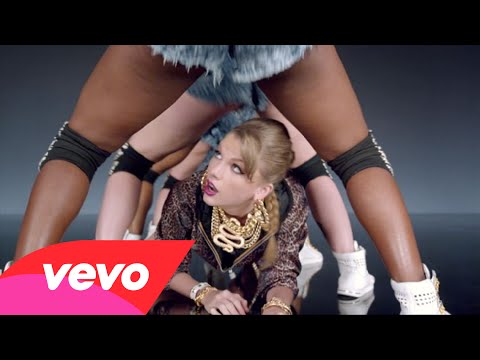
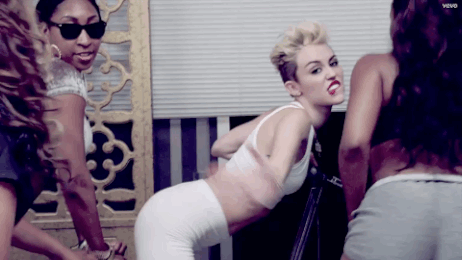
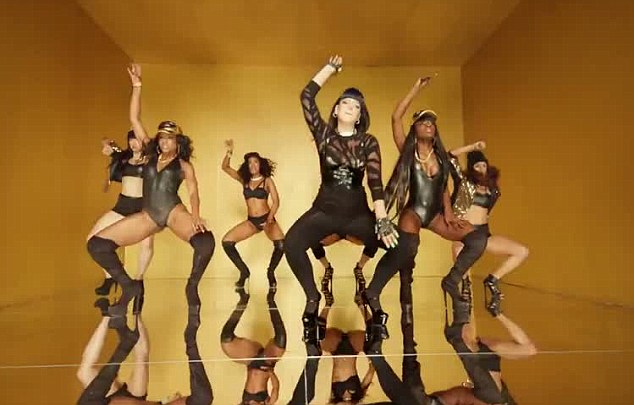
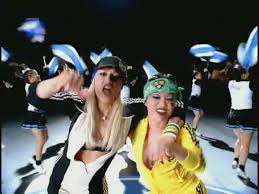
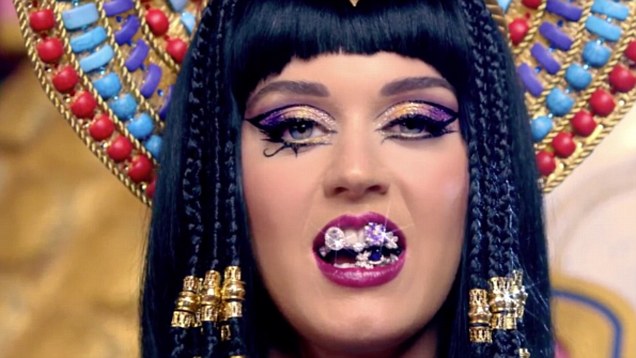
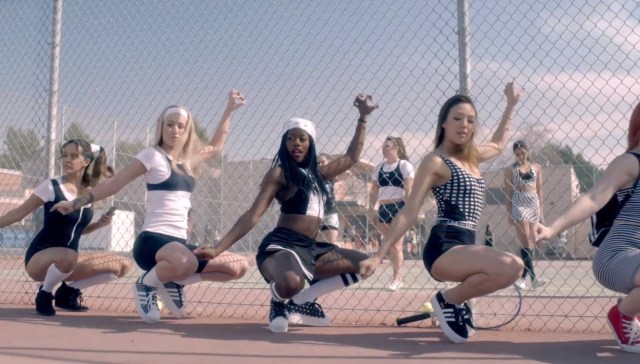
At For Harriet, Kimberly Foster remarks that “The clip is particularly interesting because I have not known Benefit to be particularly black girl friendly. Their products serve a fairly narrow market. Bon Qui Qui’s affected speech and “ghetto” aesthetic are played up for laughs and purposely juxtaposed with to the “typical” Benefit customer.” Dodai Stewart criticized Miley Cyrus for “playing” at being a minority specifically from a lower socio-economic level.” The same thing is going on with this video. Johnson, who is of Mexican and Native American heritage, mentions “chola” eyebrows and $2.99 makeup in the same breath.
Kimberly Johnson is correct that the “Bon Qui Qui” caricature is not the typical Benefit customer. Benefit markets its products to the consumer who’d say things like “I just love 1950’s fashion, I was born in the wrong decade,” and has a skin tone within Benefit’s limited range of foundation shades: They’re white as hell. And they think Bon Qui Qui is funny.
When you don’t even make products for Black customers, why worry about offending them?
Benefit isn’t the only company to use racist ad campaigns. Illamasqua pulled a “Sorry not sorry you didn’t understand our ART” in 2012 after they were criticized for a Christmas ad that featured blackface. According to a now-deleted post on he Illamasqua Australia Facebook page, “Alex Box, Illamasqua’s Creative Director, has emphasised that this campaign is about colour ON the skin, not colour OF the skin, depicting polarity between the two images (both images are the same model) not race.”
Uh huh.
Here’s the ad in question:
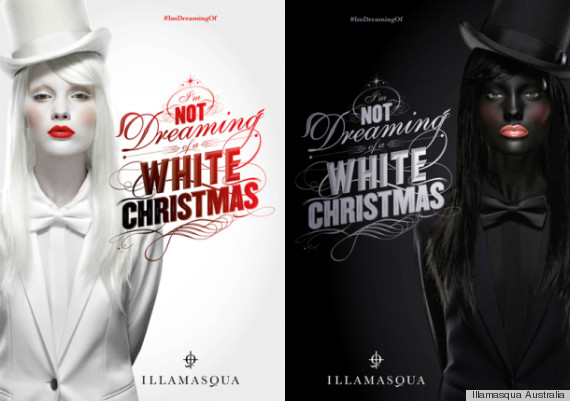
Here’s the toothpaste ad that Dodai Stewart posted in Jezebel’s comment section:
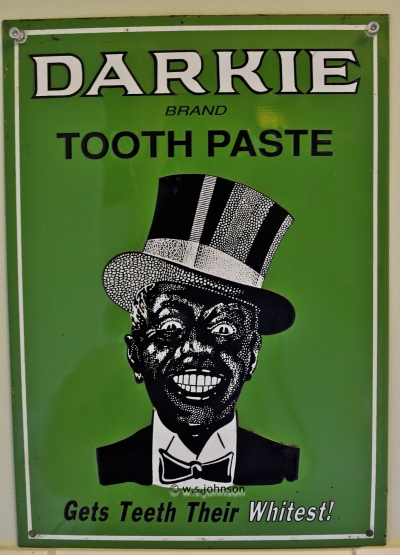
Alex Box of all people should know that there are many creative ways to “emphasise colour ON the skin” without being racist.
In 2010, MAC and Rodarte received well-deserved criticism from beauty writers for their “Juarez-inspired” collaboration. MAC cancelled the collection, after beauty writers engaged in a public campaign criticizing the brand.
Benefit is a successful company on the strength of their products and services. They were one of the first brands to offer brow services at their counters, and now Benefit Brow Bars can be found across the country. “They’re Real!” Mascara is a bestseller, and the Push Up Liner received praise and positive reviews when it launched in July. Benefit would do best to let the products speak for themselves, rather than letting racism speak for the brand. For Harriet sums it up best: “The frequency with which this discussion must take place is maddening, and I’m not one to give women of color passes for profiting from anti-blackness and classism because “ghetto” Black and Latina women deserve to be more than a punchline. ”
Benefit Cosmetics would benefit (heh) from some feedback. You can find the brand on Facebook, Twitter, and Instagram.




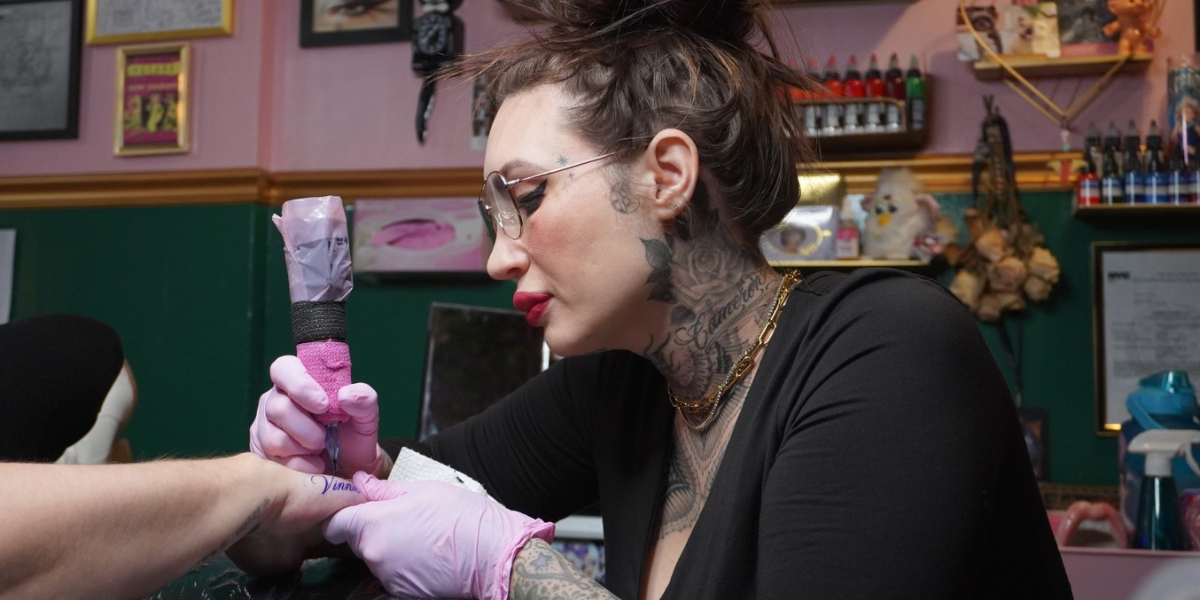



Comments
Sweet mother of G-d
this is so good: “This could be a recruitment video for The Iggy Azalea School For Basics Who Can’t Rap Good And Want To Do Racist Stuff Too.”
I got 32 seconds in before my eye started twitching.
I can’t believe how incredibly offensive that ad is. How… Who said “yeah, great idea!” On that one?
I honestly don’t get how any of those video clips can be regarded as racist?
and sorry I should have clarified, by video clips I’m only referring to the actual music videos, not the first video for the make up commercial.
They’re reducing Black women’s bodies to mere fetishized parts and are playing into stereotypes of “ghetto” or “rachect” Black culture.
Hi Tabz,
One reason that those videos are racist is that in the US, there is a specific history of a) black people making cool music and culture, and b) white people adopting those styles and making huge profits without ever sharing any of the credit or money with the people who created the cool thing in the first place. It’s a racist double standard where black artists are judged harshly for doing things outside of mainstream white culture (ex: twerking or speaking AAVE), while white artists are celebrated and seen as “cool” for doing the exact same things. They just happen to be white, which is more palatable to the general (racist) public.
The articles Elena linked on Katy Perry and Miley Cyrus are good resources to start with. You can also Google “cultural appropriation in music videos” to find many other perspectives on the topic.
Hey Laura, Thanks for the reply.
I get what you mean by saying that they’ve adopted those styles and made money off them, but how would they be able to give credit/money back? How would you decide who specifically got the credit or money? and also how would you decide which specific artists need to give credit?
I don’t think that white artists should be blamed for the fact that the audience views them differently. In saying that though I still honestly don’t believe that white artists are viewed any differently in doing those things. Although I do live Australia so I also don’t know what Americans are like with this stuff.
The Lily Allen and Iggy Azalea video clips definitely aren’t racist. The Lily Allen video clip is literally just back up dancers, I don’t think it would have mattered if they were black or white. The Iggy Azalea video clip is an almost exact copy of the movie Clueless, so everything used in that video clip is just copying the movie.
Thank you for the links as well, I’l check them out when I get the chance :) Also feel free to pull me up if I’m not using the correct terms for things, I’m not trying to be offensive in saying all this. I’m honestly just interested as I used to work in the industry and have friends touring America at the moment.
Hmm, I’m guess not that familiar with Australian history. But given the context of American slavery, white people profiting off of black people’s unpaid labor is really deeply offensive. It isn’t about figuring out a way for white artists to keep doing it while giving back some of the money to POC behind the scenes; they kind of just need to avoid doing it. There are plenty of other ways available for them to express themselves.
I agree with you that it isn’t the fault of white artists that people perceive them in a particular way. However, there’s a definite lack of sensitivity that I personally find very frustrating. These white pop stars try on pieces from other cultures, but rarely show up when it’s time to fight for the people who made it. (Ferguson, for example, has barely been mentioned. Probably because it would get in the way of moneymaking.)
I honestly don’t know a whole lot about American history but I totally understand how in relation this can be deeply offensive. Also what would your opinion be on a situation were say a black and a white artist do a collaboration for a song and video clip? Would it be appropriate for the black artist to use these stereotypes but not for the white artist to use black stereotypes?
I definitely agree with you on the lack of sensitivity and how frustrating it is. Although I do feel that the music industry as a whole is getting better at recognising and supporting real world issues. (The rate of homelessness in the US and the police brutality in Ferguson were brought up during this years MTV Video Music Awards.)
I suppose it would still be possible to mess up a collaboration, but it seems a lot less likely! Plus that would fix some of the issues with credit and money. I wish more artists would go that route vs. what we see now.
Because some people are hyper sensitive and will find racism and any -ism you can imagine around all corners, simply by willfully ignoring spirit and intent.
Hey Tabz,
As someone who lived in Australia for 6 years I can tell you that racism like this still affects Australians – anti-blackness is still a major Australian problem. In Australia it gets coupled up with anti-Indigenous sentiment (due to their use of “Black” to also identify themselves, which is connected to a lot of historical background), and there are also Australians of African descent.
Hey Creatrix,
I definitely know racism in Australia is a huge issue and still affects people, some of my closest friends are indigenous and it’s often a topic of discussion. I just meant that it’s a different type of racism to America if that makes sense?
I wouldn’t call it racist so much as just outrageously obnoxious. It’s kind of racist to call the “ghetto” stereotype a black thing, really; anyone can have that kind of attitude or dialect depending on their environment. But maybe that’s just me.
I would disagree. (Besides, the word ‘ghetto’ refers to residential segregation in the first place, which has everything to do with social concepts of race.)
(*Mention of classist/racist slurs follows*)
There’s a reason why the expression ‘white trash’ exists, when ‘black trash’ or ‘Latino trash’ do not: the people deemed to be ‘trash’ (the poor and ‘ghetto’) are so unoften white that these white people are considered a white version of POC.
‘There’s a reason why the expression ‘white trash’ exists, when ‘black trash’ or ‘Latino trash’ do not: the people deemed to be ‘trash’ (the poor and ‘ghetto’) are so unoften white that these white people are considered a white version of POC.’
Ah this is amazingly said.
Does anyone else feel like Katy Perry has strange, horrible, sparkly mushrooms growing out of her teeth?
GOD. I couldn’t even watch 20 seconds of this ad but I’m glad I found this article. I’ve always been wary of the 1950s-styled advertisements this company is all about. At first I thought “yeah, this is cute and quirky and the colors are nice too” but the advertisements kept growing, their cosmetics continued selling, and the more I saw the advertisements, the more I realized: Where are the people of color? Why are all these glam 1950s dolled up women WHITE?! I would continually think about the origin of these mid 20th century American advertisements. The 1950s will remind idealists of dreamy actors (hello James Dean!), vibrant and adventurous teens and fashion, but we should be reminded of the blatant racism and segregation african-americans had to persevere through during this era. (I would like to continue articulating this idea, but I hope my statements generate a more thoughtful discussion in the future.)
Overall, I enjoy their mascara and samples I receive in my birchbox, but NO, Hoola will not work with my tan complexion, and NO I will probably never support this brand unless they apologize for such an idiotic ad and put their damn minds together to find a better marketing strategy. Because in the end, it’s all about the money…